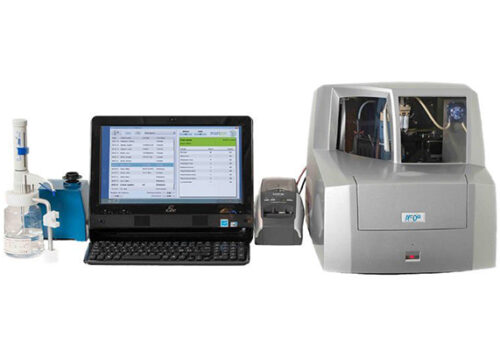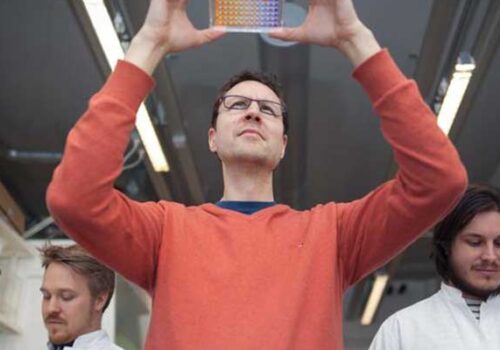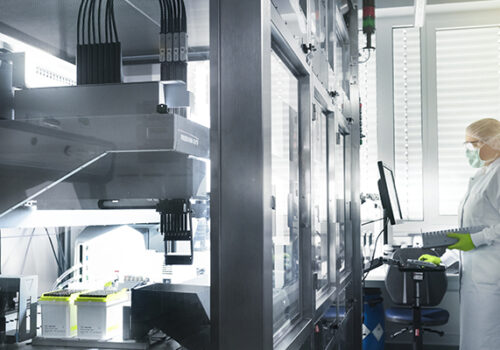Since launching at Davos in 2017, an Oslo-based global organization has been accelerating pandemic preparations.
Years before COVID-19 appeared, the Coalition for Epidemic Preparedness Innovations (CEPI) began working to make vaccine development – including for coronaviruses – faster and less of a financial burden. CEPI is a global nonprofit, supported by public and private funders, based in Oslo. It arose after 2013-2016 Ebola epidemics showed the complexities of rapid vaccine deployment.
“Our mission is to accelerate development of vaccines for epidemics and enable equitable access to them,” says Elen Høeg, CEPI policy manager, “because we know new viruses and epidemics will arise.”
Review vaccine types
A New England Journal of Medicine Perspective from CEPI leaders gives an overview of the organization. It reviews vaccine types – from traditional inactivated viruses to new DNA and RNA platforms – using examples of COVID-19 vaccine candidates. The article compares the usual timeline of vaccine development with an outbreak model in which steps that are usually sequential now overlap, such as animal studies in parallel with human phase 1 testing. The outbreak paradigm includes the high-risk step of building manufacturing capacity before knowing which vaccine will be successful.

This scanning electron microscope image shows SARS-CoV-2 (yellow) isolated from a patient in the U.S., emerging from the surface of cells (blue/pink) cultured in the lab. Image captured and colorized at NIAID’s Rocky Mountain Laboratories (RML) in Hamilton, Montana. Credit: NIAID-RML
Vaccines for emerging diseases lack incentives. Development usually takes 10-15 years and millions of dollars. Few candidates reach market and demand is uncertain. In addition, phase 3 testing requires large numbers of people at risk and can occur only during an outbreak. CEPI helps advance candidate vaccines through phase 1 or 2 so they are ready for phase 3 trials when possible.
CEPI supports standardized, “antigen-agnostic, plug-and-play” platforms for manufacturing and distributing vaccines, Høeg says. Similar to the way annual flu vaccines are made, these platforms could be activated as soon as the sequence of a new virus is known.

Transmission electron microscope image of SARS-CoV-2 isolated from a patient in the U.S. Virus particles are shown emerging from the surface of cells cultured in the lab. The spikes on the outer edge of the virus particles give coronaviruses their name, crown-like. Image captured and colorized at NIAID’s Rocky Mountain Laboratories (RML) in Hamilton, Montana. Credit: NIAID
Pandemic journey
Working at CEPI in 2020, Høeg says, is “an interesting journey.” As soon as SARS-CoV-2 was identified, CEPI contacted partners doing relevant research and quickly set up new academic and industry partnerships on COVID-19 vaccines.
As the disease spread, organizations merged efforts. CEPI is now part of the Access to COVID-19 Tools Accelerator with partners such as the Gavi vaccine alliance, the Bill & Melinda Gates Foundation, and the Wellcome Trust. The ACT Accelerator launched in April from the World Health Organization to focus on COVID-19 diagnostics, therapeutics and vaccines.
To join this work, leaders of small and large companies and academic and research institutes are welcome to reach out to CEPI and respond to calls for proposals and expressions of interest, Høeg says. “Everyone needs to step up during this crisis,” she says. “The whole world is collaborating on a COVID-19 vaccine and partnership is the key to success.”

Left: Photo of Elen Høeg: Credit Hoff Fotografen/CEPI Right: This transmission electron microscope image shows SARS-CoV-2 isolated from a patient in the U.S. Virus particles (round gold objects) are shown emerging from the surface of cells cultured in the lab. The spikes on the outer edge of the virus particles give coronaviruses their name, crown-like. Image captured and colorized at NIAID’s Rocky Mountain Laboratories (RML) in Hamilton, Montana. Credit: NIAID-RML
REFERENCE
Lurie N, Saville M, Hatchett R, Halton J. Developing Covid-19 vaccines at pandemic speed. N Engl J Med 2020. doi: 10.1056/NEJMp2005630







